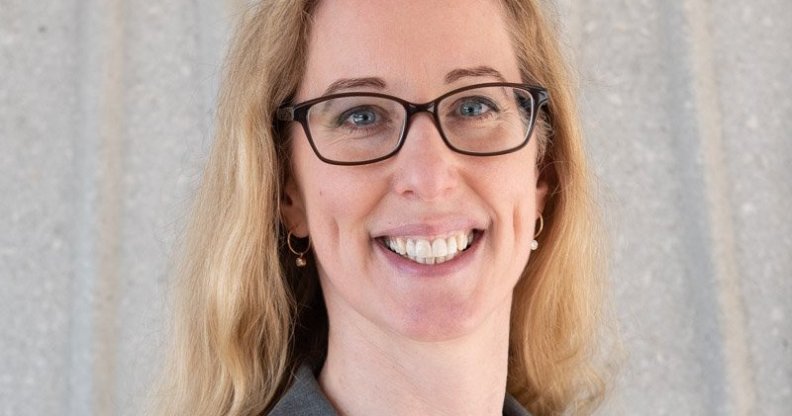Scottish Greens launch campaign to get more non-binary people into politics

New Scottish Greens co-leader Lorna Slater. (Twitter)
The Scottish Greens have elected two new co-leaders, Patrick Harvie and Lorna Slater, for the first time – replacing the previous co-convener positions.
Slater replaces Maggie Chapman, who was previously co-convener of the Scottish Greens along with Harvie but lost out in the leadership election.
Getting more women and non-binary people elected is an immediate priority for Slater, who said that “we need more” women and non-binary people in politics.
“We’re copying Women 50:50 – the theory being that women need to be asked, they don’t like to put themselves forward,” Slater told CommonSpace.
“We’ve got some graphics to show people, and we’ve got a cute little video – my husband’s an animator – trying to encourage women to stand. We’re going to have eight regional lists, and we want at least half of the people on those lists to be women, so that means we need more than 40 women and non-binary people,” she said.
Insufficiently diverse candidate lists are “not happening on my watch,” Slater added.
The goal for the Scottish Green Party now is to win more seats in the 2021 Holyrood election, she said.
Greens campaign for non-binary politicians much needed
In 2018, Scotland’s only openly transgender politician – a Scottish National Party councillor called Gregor Murray – stepped down from their role citing online abuse for their decision.
In Murray’s resignation letter of August 2018, they said, “As the only openly trans person elected in Scotland, it has not been easy dealing with the sustained and vindictive nature of some of the personal attacks and threats to my life that I have received over the past few months.”
“My own mental wellbeing is not where it should be. As well as issues surrounding my personal life, I have also been subjected to a vicious and sustained string of abuse across various social media channels, a small fraction of which you have witnessed,” they said.
There are currently no openly trans MPs in the UK.
Scotland recently announced it was delaying planned reforms to the Gender Recognition Act in order to conduct further public consultation and an equality impact assessment.
The Scottish government also announced it would not be extending legal recognition to non-binary trans people.

